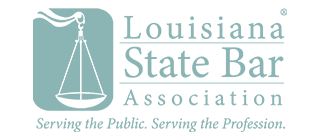New Orleans
Work Visa Attorneys

While the most common way to get a green card to live and work in the U.S. might be through a family-based application, some applicants also obtain status through work.
The Immigration and Nationality Act provides 140,000 employment-based immigrant visas each year, and hundreds of thousands of visas are granted to those coming to the U.S. for teaching and research.
Pelton + Balducci works with people seeking visas and immigrant status through work and school throughout the greater New Orleans area. We have helped many people achieve their goals of obtaining these types of visas, and we are dedicated to helping you achieve your goals, too.
Pelton + Balducci works with people seeking visas and immigrant status through work and school throughout the greater New Orleans area. We have helped many people achieve their goals of obtaining these types of visas, and we are dedicated to helping you achieve your goals, too.
Employment-Based Immigration Options
There are five preference categories for work visas to the United States.
Because there is a worldwide limit to the number of employment visas given each year, these preferences can make a difference for someone applying.
1. Employment First Preference (EB-1)
This category makes up 28.6% of the number of applicants who receive this visa worldwide. These recipients have an approved I-140 Immigrant Petition for Foreign Worker form and are either:
- A person of extraordinary ability in the sciences, arts, education, business, or athletics,
- A professor and researcher with either 3+ years experience in teaching or research or is recognized internationally, or
- An executive or manager who was employed at the overseas branch of a U.S. company.
2. Employment Second Preference (EB-2)
The second type of applicants must have a different set of requirements:
- A Job offer from a U.S. employer (who files the petition) and Labor Certification approved by the Department of Labor,
- Schedule A designation, or
- A “National Interest Waiver” of the Job Offer and Labor Certification requirements
3. Employment Third Preference (EB-3)
The third designation is for Skilled Workers, Professionals with Baccalaureate Degrees, and Other Workers. Like EB-2s, EB-3s must provide an application from their prospective U.S. employer and must qualify for one of the shortage occupations in the Labor Market Information Pilot Program.
4. Employment Fourth Preference (EB-4)
EB-4 applicants are referred to as “special immigrants.” These applicants make up less than 10% of all employment-based visas. They must be beneficiaries of Form I-360 or Form DS-1884.
Some examples of these “special” EB-4 applicants can include:
- Broadcasters
- Ministers of Religion
- Certain Employees or Former Employees of the U.S. Government in various countries abroad
- Interpreters and translators
- Children who have received Special Immigrant Juvenile Status from USCIS
5. Employment Fifth Preference (EB-5)
EB-5 applicants are entrepreneurs who want to invest $500,000 or more in a commercial enterprise in the U.S. These applicants can file Form I-526, Immigrant Petition by Alien Entrepreneur.
Employment-based nonimmigrant (i.e., temporary) statuses include:
- E-1 Treaty Traders
- E-2 treaty investors
- H-1B for workers in “specialty occupations”, which generally require at least a Bachelor’s degree or equivalent
- L-1 Intra-company transferees or executives or managers seeking to establish a new office in the United States
- O-1 individuals of extraordinary ability
- TN (Treaty Nationals), citizens of Canada and Mexico who work within certain professions
Academic-Based Non-Immigrant Options
While many people come to the U.S. for its job opportunities, hundreds of thousands of others come to study, teach, or share their knowledge. There are a few types of non-immigrant (temporary) visas available for these academic purposes.
F Visa - International Student
This visa is for a student who would like to study abroad at a U.S. institution such as a college, university, seminary, conservatory, high school, etc. To be eligible, students must be accepted to the school of their choice and obtain an I-20 issued by the school.
J Visa - Exchange Visitor Program
J-visas are for certain exchange visitors that fall within 15 classifications, including au pairs, camp counselors, college and university students, interns, physicians, professors, and teachers. Some but not all of these visas are subject to a two-year foreign residency requirement.
Contact a New Orleans employment and academic-based immigration attorney today
If you meet the eligibility requirements and are interested in applying for an employment-based or academic-based visa to work, study, teach, or do research in the U.S., our team is here to help. Contact Pelton + Balducci today at (504) 708-5400 to schedule a consultation.
Contact Pelton + Balducci today:







